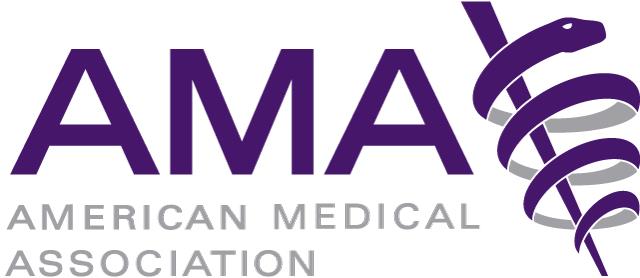HI 7000
Patient Care Technician
This program prepares you to work directly with patients in a variety of healthcare settings.
Program Overview
Certifications earned
What Does a Patient Care Technician Do?
The care of patients involves not only treating disease and injury, but also illness prevention, restoring wellness through rehabilitation, caring for the chronically ill, and educating patients and families. Doctors, nurses, and other healthcare professionals rely on Patient Care Technicians to assist with the critical day-to-day care some patients require. This may include anything from bathing and feeding patients to performing EKGs, blood draws, or assisting physicians with procedures.
- Understand the responsibilities of basic patient care — bathing, feeding, catheter care, etc.
- Perform safety checks and ensure cleanliness in patient rooms
- Recognize the importance of special care, concerns, and settings
- Understand EKG readings and monitoring vital signs
- Perform phlebotomy procedures, lab tests, blood glucose tests, and exercise/nutrition/diet monitoring
- Demonstrate an understanding of the soft skill expectations of an allied healthcare professional
What You’ll Learn – HI 7000 Patient Care Technician
Throughout the Patient Care Technician certificate program, you will learn, in a virtual environment, how to assist physicians and nurses by providing basic and advanced clinical duties in a virtual medical environment. The program covers subjects such as anatomy and physiology, medical law and ethics, medical communications, medical records, patient preparation, medical terminology, safety and compliance, and basic laboratory procedures and tests compiled into five courses taught over 24 weeks.
You’ll learn a wide variety of fundamental clinical tasks designed to set you apart in the competitive job market. Upon completion of this program, you’ll have met the training requirements to sit for the Certified Patient Care Technician (CPCT) exam which is sponsored by the National Healthcareer Association (NHA).
As a certified Patient Care Technician, you’ll work alongside other healthcare professionals in hospital settings, physicians’ offices, nursing homes, or long-term care facilities to provide hands-on assistance to serve patients’ basic needs.
Graduates of this program are strongly encouraged to pursue supervised administration of required Phlebotomy and EKG tasks required for certification. These are additional requirements after obtaining employment in the field as a prerequisite to gaining certification as a Certified EKG Technician (CET) or a Certified Phlebotomy Technician (CPT). We can assist you in finding clinical sites, but we cannot guarantee placement.
View More
Not Sure if Patient Care Technician Training is Right For You?
Take our easy 2 minute Career Quiz!
Find your next careerSome MedCerts programs are restricted in certain states or regions. Please review our State Restriction page to see what restrictions there may be in your state/region or residence of employment to ensure you are eligible for enrollment.
These restrictions may not apply to students taking programs through an employer, academic or government-sponsored model – including MyCAA, GI Bill® Reimbursement and Army, Air Force or Coast Guard Credentialing Assistance. To determine eligibility, please confirm with your sponsor or review our military spouse MyCAA-approved or Military Credentialing Assistance-approved programs
Program Details

American Medical Association (AMA) Collaboration
MedCerts has integrated the AMA’s Blood Pressure Measurement Series into our allied health programs, so you’re trained in the most current, evidence-based techniques for accurate blood pressure measurement.
- High School Diploma or GED
- Web browser with internet connection
- Course registration & payment
- English language proficiency
- Expert-led video based training
- eBooks: Phlebotomy Worktext and Procedures Manual, Electrocardiography for the Healthcare Professional, and Fundamental Concepts and Skills for the Patient Care Technician
- Competency assessments
- National Certification exam fee
*The cost of all materials needed for this program are covered by MedCerts. They are not included in the tuition costs and are provided at no additional cost to students. However, students have access to these materials for a limited time frame aligned with their program. Access to these materials outside of this period is not guaranteed, and students may be responsible for costs associated with any extended access.
- Dedicated Student Success Advisors
- Tailored support based on performance & behavior
- Exam preparation process
- 1 yr. post-program access to Career Center & Career Coaches
- CPT Certification: 30 venipunctures and 10 capillary sticks on a live person, which must be completed within 90 days of passing the CPT exam.
- CET Certification: 10 live EKGs, which must be completed within 90 days of passing the CET exam.
Career Outlook

Patient Care Technician
Job Opportunities
openings in the US
potential
Tuition Cost
Patient Care Technician Online Training
Monthly, weekly and bi-weekly payment plan options are available. These payment plans include a 3.5% fee per transaction. Students who choose to pay in full will not be charged the transaction fee.
Active Duty Military Grants
MedCerts accepts education benefits from the Department of Defense for Active Duty Army, Coast Guard and Air Force and the Department of Veteran’s Affairs for GI Bill® Reimbursement.
Military Spouse Grants
Spouses of Active Duty Service Members in certain ranks may be eligible for assistance up to $2,000 per fiscal year or reimbursement for training.
Workforce Grants
MedCerts partners with American Job Centers in 30+ states and accepts Workforce Innovation and Opportunity Act (WIOA) and other workforce grant funding.
Veteran Grants
Veterans, active-duty service members and eligible dependents can enroll in select MedCerts training programs and receive reimbursement through the GI Bill® upon successful completion.
FAQs
FAQs for MedCerts’ Online Patient Care Technician Certification Training Program
A Patient Care Technician supports doctors, nurses and other healthcare professionals by providing essential day-to-day care to patients. This includes tasks like bathing and feeding patients, as well as performing clinical duties such as EKGs, drawing blood and assisting with medical procedures. They also play a role in illness prevention, rehabilitation and educating patients and families, making them integral to comprehensive patient care.
The US Bureau of Labor Statistics projects that employment for Patient Care Technicians (PCTs) will increase by 5% from 2021 to 2031. A significant portion of these job openings will arise from the need to replace workers who move to other professions or retire.
The average starting salary for patient care technicians is $34,434. Salaries can vary based on location, experience, and the specific setting in which they work.
To become a Patient Care Technician, you need a high school diploma or equivalent and specialized training through an institution such as MedCerts. Upon completion of the program, you’ll have met the training requirements to sit for the Certified Patient Care Technician (CPCT) exam, sponsored by the National Healthcareer Association (NHA).
In the Patient Care Technician program, you’ll learn:
- The Responsibilities of Basic Patient Care — Bathing, Feeding, Catheter Care, etc.
- The Importance of Special Care, Concerns and Settings
- EKG Readings and Monitoring Vital Signs
- Phlebotomy Procedures, Lab Tests, Blood Glucose Tests and Exercise/Nutrition/Diet Monitoring
To enroll in the Patient Care Technician program, you will need a high school diploma or GED, a web browser with an internet connection and course registration & payment.
The cost of the program is $4,000. The cost includes all of your materials and certification exam fees for the PCTC examination.
MedCerts offers various payment options for the Patient Care Technician program, including monthly payments as low as $346 or the option to utilize government grant funding.
While MedCerts does not offer financial aid, students may be eligible for options through government grant-funded programs like:
This program is 24 weeks long if completing 15-20 hrs of coursework per week.
MedCerts’ certification programs are fully online and designed for remote learning, allowing students to progress at their own pace. The instructional design incorporates interactive elements, simulations and expert instruction. Required courses for this program include Professionalism in Allied Health, Introduction to Human Anatomy and Medical Terminology, Phlebotomy, Electrocardiography and Fundamentals of Patient Care.
MedCerts includes exam fees and preparation materials in the program cost. The courses are designed to prepare students to take and pass the CPCT, CET and CPT certification exams.
Yes, the program includes exam preparation resources and support to help students successfully pass the Certified Patient Care Technician (PTTC), Certified EKG Technician (CET) and Certified Phlebotomy Technician (CPT) exams. Additionally, MedCerts students are provided access to a Student Success Advisor team, Subject Matter Experts and Career Coaches to assist with exam prep.
The program includes expert-led video training, eBooks and competency assessments. MedCerts-Covered Materials also include exam fee coverage. Students get access to additional services like dedicated advisors and tailored support as well.
Some MedCerts programs are restricted in certain states or regions. Please review our State Restriction page to view what restrictions there may be in your state/region or residence of employment and ensure you are eligible for enrollment.
We’re not institutionally accredited as a training provider, but the certifications you’ll earn in this program are accredited through the exam-issuing authority, the National Healthcareer Association. So while our school itself doesn’t hold accreditation, you’ll earn an accredited certification upon passing your national exam.
There are no clinical requirements for the primary certification Certified Patient Care Technician. Students wishing to sit for the Certified EKG Technician exam will be required to complete a minimum of 10 EKGs on a live person, which must be completed within 90 days of passing the CET exam. Those interested in sitting for the Certified Phlebotomy Technician exam will be required to complete a minimum of 30 venipunctures AND 10 capillary sticks on a live person, which must be completed within 90 days of passing the CPT exam. Certifications are issued once the exam(s) have been passed and clinical requirements have been met.
Disclaimers
- This program is approved in CA and WA, but individuals who intend to work in those states should be aware that this program is not approved to prepare students to draw blood.
- While MedCerts training and related target certifications may be accepted and/or approved by your state of residency, employers reserve the right to dictate prerequisite education, experience, or certification/licensure requirements for their positions. We strongly advise students to research target job posts from area employers and relevant state requirements, barriers, or restrictions prior to enrollment to ensure eligibility upon graduation.

